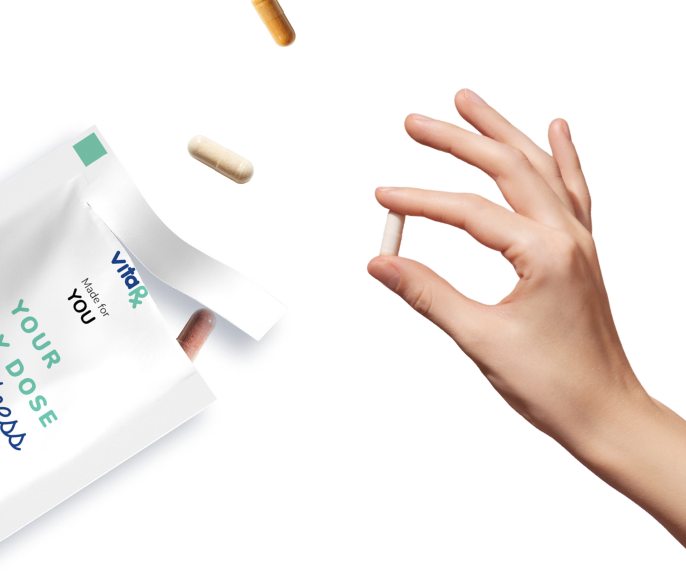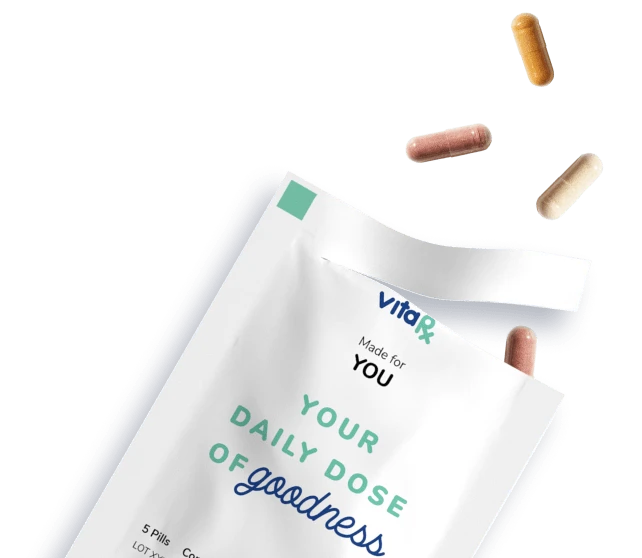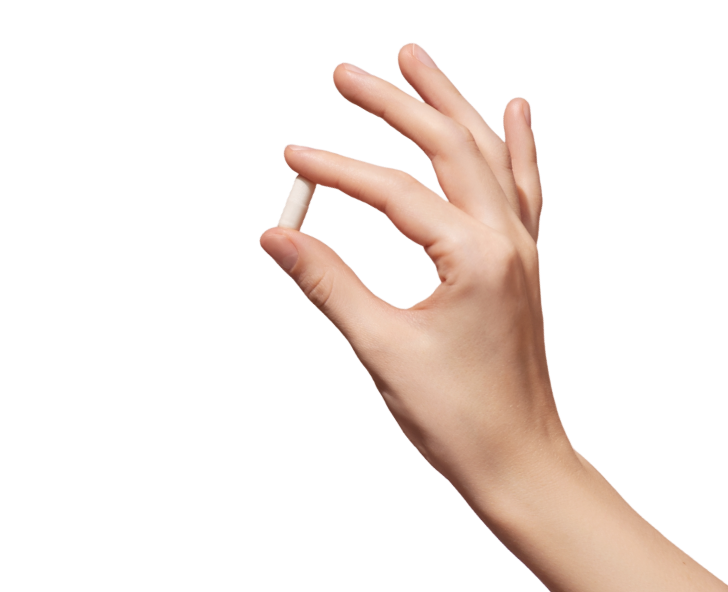Last update: January 20, 2025
7 minute read
10 Best Supplements to Manage High Blood Pressure
Explore the top 10 supplements that can support a healthy heart and blood pressure. Learn about effective natural options like Calcium, CoQ10, Omega-3s, and more.

By Stephanie Wright, RN, BSN
Edited by Dr. Jacquie Leone, NMD, HN

Have you ever wondered if there's a natural way to support a healthy heart? With the busy daily routine and modern life stress, it's crucial to keep your heart health and blood pressure in check.
That's where supplements may help. We'll talk about some good ones that might help people with high blood pressure. Keep in mind, these aren't magic fixes, but they may be helpful in your plan to keep your heart healthy.
Key takeaways
- Some supplements may help lower blood pressure levels
- Talk to your doctor before adding any supplements to your regimen
- A holistic approach, combining diet, exercise, and lifestyle changes, is important
What supplements might support high blood pressure management?
Finding the right supplements for better blood pressure might feel confusing, but with the right info, you can make choices that help your heart. Check out some top-tier supplements that research shows could help manage high blood pressure. Remember to talk to your doctor before trying any new supplements, especially if you have health issues or take medication.
1. Calcium
Calcium is super important, not just for strong bones but also for keeping your heart in good shape and managing blood pressure. It also helps the muscles in your heart work smoothly. So making sure you get between 1,000 and 1,300 mg of calcium every day, either from food or supplements, could be really helpful for your blood pressure.
2. CoQ10
Coenzyme Q10 is great for turning food into energy and keeping your heart beating. Some studies show that taking CoQ10 might slightly lower systolic blood pressure in those with primary hypertension. This could be worth discussing with your doctor for those wanting to take care of their heart health.
3. Omega-3s in Fish Oil
Omega-3 fatty acids, which are in fish oil, are good for your heart. According to the American Heart Association, their evidence review shows that three grams daily can help lower your blood pressure.
You may get these good fats by taking supplements or eating fatty fish like salmon, mackerel, or sardines. It's a simple way to support your heart health.
4. Garlic
Garlic isn't just for flavoring your food; it might also help lower your systolic blood pressure. Garlic supplements have shown effectiveness in reducing blood pressure in those living with hypertension, similarly to prescription blood pressure medications. But if you're on blood-thinning medication, be cautious with garlic supplements.
5. Ginger
Ginger, known for easing nausea and menstrual discomfort, might also be good for managing blood pressure. The special stuff in ginger could help bring down both systolic and diastolic blood pressure. It may also hold heart disease benefits like lowering cholesterol.
6. Green Tea
Some studies have shown that the antioxidants in green tea might help lower systolic and diastolic blood pressure in healthy adults (i.e. those without hypertension). If you regularly drink green tea or take supplements, it might give your heart some benefits.
VitaRx Tip
The great thing about green tea is it’s easily accessible at your local market or online, and tastes great.
7. L-Arginine
Evidence shows L-arginine helps lower your blood pressure. It works by promoting blood flow and reducing vessel inflammation. You can find it in different foods like fish, poultry, tofu, and beans. It’s also available in supplement form.
8. Magnesium
The Food and Drug Administration (FDA) acknowledges the relationship between magnesium and a reduced risk of high blood pressure due to recent evidence. You may find magnesium in foods like leafy greens, nuts, and beans. If you're not getting enough magnesium from food, you might consider taking a supplement.
9. Potassium
Increasing potassium intake can help decrease your blood pressure if you have hypertension. By lowering blood pressure, it may also reduce your risk for heart disease and stroke.
You can get potassium from foods like bananas, avocados, and sweet potatoes. If needed, your healthcare provider may also suggest potassium supplements.
10. Vitamin D
Having more vitamin D is good for your blood pressure. It may lower the risk of hypertension, which is important for those living with chronic diseases like heart disease You may get vitamin D from the sun, some foods, or supplements if needed.
More high blood pressure management tips
Controlling high blood pressure is more than just taking supplements; it's about how you live. Here are some simple things you may do to keep your blood pressure healthy:
- Exercise regularly to make your heart stronger and improve blood flow.
- Eat a balanced diet with lots of fruits, veggies, whole grains, and lean proteins.
- Don't eat too much salt because it may make your blood pressure go up.
- Cut down on drinking alcohol, as it may raise your blood pressure.
- Stay away from tobacco and try not to be around secondhand smoke.
- Check your blood pressure often to see how you're doing.
- Manage stress with things like deep breathing, meditation, or yoga.
- Make sure you get enough sleep—aim for 7-9 hours each night.
VitaRx Tip
Supplements may help, but they work better when you also have good habits.
Advantages and disadvantages of using supplements for high blood pressure
Taking supplements to help with high blood pressure may be helpful, but it's important to look at the good and not-so-good sides of it.
Frequently asked questions (FAQ)
Final thoughts
It's clear that supplements may be helpful for your health, especially in controlling blood pressure. They may fill in nutritional gaps and might give some heart-related benefits.
But it's important to team up these natural helpers with healthy habits and advice from your healthcare professional. As you look for ways to keep your heart happy and your blood pressure steady, remember it's a gradual process. Stay informed, take action, and work on reaching your health goals.
Source
- Calcium - Health Professional Fact Sheet
- Dose-Response Effect of Coenzyme Q10 Supplementation on Blood Pressure among Patients with Cardiometabolic Disorders: A Grading of Recommendations Assessment, Development, and Evaluation (GRADE)-Assessed Systematic Review and Meta-Analysis of Randomized Controlled Trials - PMC
- Effect of Vitamin D on Blood Pressure and Hypertension in the General Population: An Update Meta-Analysis of Cohort Studies and Randomized Controlled Trials
- Effect of Green Tea on Blood Pressure in Healthy Individuals: A Meta-Analysis
- Does coenzyme Q10 lower blood pressure in patients with hypertension?
- Garlic lowers blood pressure in hypertensive subjects, improves arterial stiffness and gut microbiota: A review and meta-analysis
- Ginger brings zing to a meal – but does it do more?
- The Effects of L-Arginine in Hypertensive Patients: A Literature Review - PMC
- FDA Announces Qualified Health Claim for Magnesium and Reduced Risk of High Blood Pressure
- Sodium, Potassium and Health
Author

Stephanie Wright
Stephanie brings over 13 years of diverse nursing experience to the table, having honed her expertise in critical care, mental health, and utilization management. Her journey as a registered nurse across these various healthcare sectors underscores her adaptability and deep commitment to patient care.
Fact checker

Dr. Jacquie Leone
Dr. Leone holds a BA in Psychology, a Doctorate in Naturopathic Medicine, and board certification in holistic nutrition. In addition to practicing medicine, Dr. Leone has developed and currently teaches science and nutrition courses for a nationally accredited institution. She specializes in chronic illness, gastrointestinal dysregulation, inflammatory conditions, and mental health. Her unique approach combines the wisdom of Eastern medicine with the technology and science of Western medicine, offering an integrative approach heavily focused on functional medicine.
At VitaRx, we're not just passionate about our work — we take immense pride in it. Our dedicated team of writers diligently follows strict editorial standards, ensuring that every piece of content we publish is accurate, current, and highly valuable. We don't just strive for quality; we aim for excellence.
Related posts
While you're at it, here are some other relevant articles you might be interested in.

Get your personalized vitamin recommendations in less than
5 minutes.
Get your personalized vitamin recommendations in less than
5 minutes.







